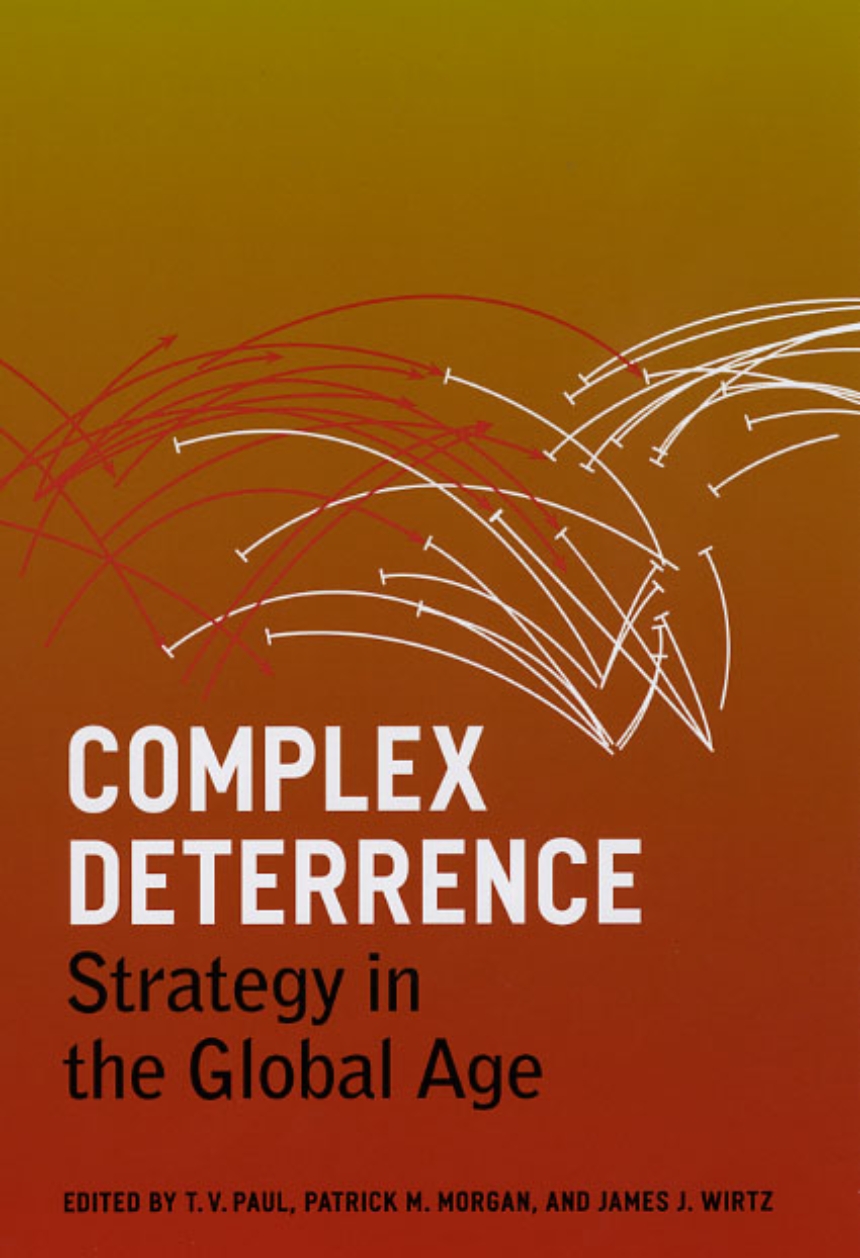Complex Deterrence
Strategy in the Global Age
As the costs of a preemptive foreign policy in Iraq have become clear, strategies such as containment and deterrence have been gaining currency among policy makers. This comprehensive book offers an agenda for the contemporary practice of deterrence—especially as it applies to nuclear weapons—in an increasingly heterogeneous global and political setting.
Moving beyond the precepts of traditional deterrence theory, this groundbreaking volume offers insights for the use of deterrence in the modern world, where policy makers may encounter irrational actors, failed states, religious zeal, ambiguous power relationships, and other situations where the traditional rules of statecraft do not apply. A distinguished group of contributors here examines issues such as deterrence among the Great Powers; the problems of regional and nonstate actors; and actors armed with chemical, biological, and nuclear weapons. Complex Deterrence will be a valuable resource for anyone facing the considerable challenge of fostering security and peace in the twenty-first century.
360 pages | 1 line drawing, 1 table | 6 x 9 | © 2009
Political Science: Diplomacy, Foreign Policy, and International Relations
Reviews
Table of Contents
List of Figures and Tables
Acknowledgements
I Introduction
1 Complex Deterrence: An Introduction 1
T. V. Paul
II Deterrence and its Challenges
2 Three Items in One: Deterrence as Concept, Research Program, and Political Issue
Jeffrey W. Knopf
3 Rational Deterrence against “Irrational” Adversaries? No Common Knowledge
Janice Stein
III Deterrence and Nonstate Actors
4 Complex Deterrence in the Asymmetric-Warfare Era
Emanuel Adler
5 Deterring Nuclear Terrorists
S. Paul Kapur
IV Deterrence and Smaller Powers
6 Deterrence, Rogue States, and the U.S. Policy
Robert Jervis
7 Collective-Actor Deterrence
Patrick M. Morgan
8 Complexity of Deterrence among New Nuclear States: The India-Pakistan Case
Dinshaw Mistry
9 Unconventional Deterrence: How the Weak Deter the Strong
Ivan Arreguín-Toft
10 Deterrence and Compellence in Iraq, 1991–2003: Lessons for a Complex Paradigm
Frank P. Harvey and Patrick James
V Deterrence and Major Powers
11 Deterrence among Great Powers in an Era of Globalization
Patrick M. Morgan and T. V. Paul
12 The Endurance of Extended Deterrence: Continuity, Change, and Complexity in Theory and Policy
Timothy W. Crawford
13 The Revolution in Military Affairs: Impact of Emerging Technologies on Deterrence
Michel Fortmann and Stéfanie von Hlatky
Conclusions
James J. Wirtz
List of Contributors
Index
